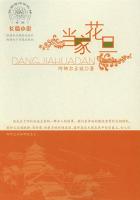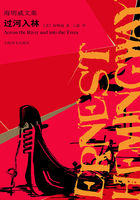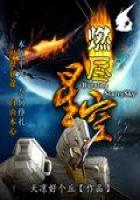These introductions made,William Emery put himself at the disposalof the newcomers.As assistant-astronomer at the Cape,he was subordinate to Colonel Everest,who had been sent out by the English Government,and who shared the presidency of the commission with the Russian Matthew Strux.He was known to Emery as a very distinguished savant,who had made his name by his calculations of the occultations of the stars and by his reductions of the nebulae.Nothing ever took him by surprise.He was about fifty,cool and methodical,whose daily life was arranged mathematically from hour to hour,and it might be said that every action of his existence was regulated by his chronometer.Knowing this,William Emery had never entertained the slightest doubt that the scientific commission would arrive at the time appointed.
Yet the young astronomer still had to learn the Colonel’s explanation of the mission he had undertaken in South Africa.But as Colonel Everest said nothing about this,Emery did not think it part of his duty to ask;it was most likely that in the Colonel’s opinion time for speaking had not yet come.
William Emery also knew Sir John Murray by reputation.He,too,was a savant,and wealthy;emulating Lord Elgin and James Ross,he had brought England honour by his astronomical work.Science was indebted to him for very considerable financial sacrifices:he had spent twenty thousand pounds in constructing a gigantic reflecting telescope,rivalling that at Parsonstown,by which the elements of a certain number of double stars had just been ascertained.He was about forty at most,with an air of good breeding,and his impassible expression never revealed his feelings.
As for the three Russians,Messrs Strux,Palander,and Zorn,their names were not new to William Emery,although he was personally unacquainted with them.Nicholas Palander and Michel Zorn showed a certain degree of deference to Matthew Strux:due to his position,if not to his merit.Emery merely noticed that the savants were equal in number—three English and three Russians.The crew of the steamer,the Queen and Czar,numbered ten—five English and five Russian sailors.
‘Mr.Emery,’said Colonel Everest,after the introductions had taken place,‘we are now as well acquainted as if we had travelled together from London.I have,I must add,a particular regard for you;young as you are,your work has gained you a well-deserved reputation.It was at my request that the Government nominated you to share in the operations we are about to undertake in South Africa.’
William Emery bowed his thanks,and thought that he might now hear something of the expedition’s object,but Colonel Everest did not refer to it.
‘Mr.Emery,’the Colonel continued,‘may I ask if you have made your preparations?’
‘All,Colonel;as instructed in Mr.Airy’s letter I left Cape Town a month ago and went to Lattakou.There I collected all the equipment needed for an exploration into the interior of Africa—provisions,waggons,horses,and bushmen.An escort of a hundred trusty men awaits us at Lattakou,commanded by the skilful and well-known hunter,whom I ask permission to introduce to you,the bushman Mokoum.’
‘The bushman Mokoum!’cried Colonel Everest‘the bushman Mokoum!I know his name quite well.’
‘It’s the name of a brave and skilful African,’added Sir John Murray,turning to the hunter,who was not at all abashed by these Europeans with their high and mighty airs.
‘The hunter Mokoum!’Emery introduced his companion.
‘Your name is very known in the United Kingdom,bushman,’said Colonel Everest.‘You were the friend of Anderson and the guide of the illustrious David Livingstone,who honoured me by his friendship.England thanks you through me,and I congratulate Mr.Emery on having chosen you as leader of our caravan.A sportsman like you must be a good judge of fire-arms.We have a fairly complete arsenal of weapons,and I beg to choose whichever pleases you most.We know it will be in good hands.’
A smile of satisfaction played on the bushman’s lips.The information that his services had been appreciated in England no doubt moved him but less than the Colonel’s offer.He thanked him suitably and then stood aside while the conversation continued between Emery and the other Europeans.
The astronomer gave them all the details regarding the expedition he had organised,and Colonel Everest seemed quite satisfied.Their first step would be to reach Lattakou as soon as possible,for the caravan was to start the first week in March,at the end of the rainy season.
‘How do you mean to get to Lattakou,Colonel?’asked William Emery.
‘By the Orange River and one of its tributaries,the Kuruman,which flows close by Lattakou.’
‘Very good,’agreed the astronomer;‘but fast as your vessel may be,how is she to get over the Morgheda cataracts?’
‘We shall go round them,Mr.Emery.A portage of a few miles will enable us to take advantage of the river again above the falls,and if I’m not mistaken,from that point to Lattakou the river is navigable for a vessel with a light draught of water.’
‘Certainly,Colonel,’replied Emery;‘but the weight of your steamer is so great that—’
‘Mr.Emery,’interrupted the Colonel,‘this steam launch is one of Laird and Company’s masterpieces;it takes completely to pieces,and it can be put together again with the greatest ease:a spanner and a few bolts are all that is necessary.Have you brought a waggon to the falls?’
‘Yes,Colonel,and our camp isn’t a mile away.’
‘Well,then,I shall ask the bushman to bring the waggon round here.We’ll load it with the component parts of the launch and its engine,which likewise takes to pieces,and then we shall set out for the place where the Orange again becomes navigable.’
Colonel Everest’s orders were carried out.The bushman soon disappeared in the woods,promising to return in an hour.During his absence the steam launch was soon unloaded;indeed,her cargo was not great—some boxes of scientific instruments,a respectable collection of guns,a keg or two of spirits,some barrels of dried meat,cases of ammunition,personal baggage reduced to the smallest size possible,tentcloths,a gutta-percha canoe carefully packed that it took up little more room than a wellfolded rug,some camping gear and so forth,and lastly a sort of mitrailleuse,by no means perfect but which would make an attack on their vessel a desperate venture for any enemies they might meet.
All these objects were stacked up on the bank.The engine,of eight horse power,and weighing about 450 pounds,was divided into three parts—the boiler and its tubes,the machinery,which was disconnected from the boiler by a turn of the wrench,and the screw;these were removed in succession,and left the hull of the boat empty.
The launch,apart from the space occupied by the engine and the holds,was divided into a cabin forward for the crew,and another aft for Colonel Everest and his companions.In a flash the bulkheads disappeared,and the boxes and bedplaces were removed.The boat then consisted only of a hull,about 35 feet long,in three pieces,like that of the MaRobert,the steam boat used by Dr.Livingstone on his first voyage up the Zambezi.It was made of galvanised steel,was both strong and light,and was bolted firmly but simply together.
Emery was astonished at the ease of the work and the speed with which it was carried out.The waggon had hardly been there an hour,in charge of the bushman and the two drivers,before the boat was ready to be packed on it.
This waggon,a primitive-looking vehicle,on four heavy wheels,the front pair being about twenty feet from the rear ones,was like an American railway‘car’in length.This ponderous contrivance,with its creaking axles,was drawn by six oxen,harnessed two and two,very obedient to the long whips of their drivers.Only such beasts as they could move it when it was loaded,for often,in spite of the skill of the‘leader’,it was stuck fast in the sloughs,until dug out by all the men in the expedition.
The crew of the Queen and Czar loaded the waggon so as to keep it in proper trim.The skill of the sailor is proverbial and the stowage of these various bales and packages was child’s play to these good fellows;the heaviest parts of the launch were put directly above the axles,where the vehicle was strongest,and the smaller articles went between them.Everything was soon in its proper places,and for the travellers themselves a walk of four miles was only an afternoon stroll.
At three in the afternoon the waggon was loaded,and Colonel Everest gave the signal to start.His companions and himself,led by Emery,went first;the bushman,the crew,and the drivers of the waggon followed them at a slower pace.
The march was easy;the detours beside the upper course of the Orange rendered it less difficult,though they lengthened it.This was very fortunate for the heavily-laden waggon,which,though it took longer on its journey,got to its goal more safely.
Conversation was general among the members of the scientific commission as they slowly mounted the hill,but not a word was said of the object of the expedtion.The Europeans greatly admired the splendid views of the country.Nature,there so wild though so beautiful,charmed them as it had charmed the young astronomer.Their journey had not yet wearied them of the natural beauties of this part of Africa.They admired everything with typically British moderation—and the cataracts were applauded,though perhaps only with the tips of the finger—Nil admirari was not entirely their motto.
William Emery thought it his duty to do the honours of South Africa to his visitors.He was at home there;and,like other enthusiastic hosts,he was not inclined to let them off even a detail of his African park.
About half-past four they had gone round the Morgheda cataracts.The Europeans,on reaching the table-land,saw the upper course of the river extend before them as far as the eye could reach.They then halted on the bank,awaiting the waggon’s arrival.
The vehicle appeared on the summit of the hill by about five;it had finished it’s journey without accident.Colonel Everest ordered it to be unloaded at once and announced his intention of starting next morning at daybreak.
The whole night was spent in a number of tasks.The hull of the launch was put together in less than an hour—the screw and its connecting rods replaced,the metal bulkheads re-erected,the holds and fuel bunkers reconst-ructed,the different bundles stowed on board in their former order.All these arrangements,made with the greatest speed,showed what the crew of the Queen and Czar were capable of.English and Russian alike,they were all picked men,well disciplined and skilful,on whom every reliance could be placed.
The next day,1st February,at dawn,the vessel was ready to receive her passengers.Black smoke was already swirling from her funnel,into which the engineer,to force the draught,directed jets of white steam,for the vessel was driven by a high-pressure engine without condenser,on the model of that of a locomotive.The boiler tubes were so ingeniously arranged,and gave so large a heating surface,that it required only half an hour to get up enough steam to go ahead.A generous supply of ebony had been loaded on board,with other scented woods,with which to heat the furnace.
At six Colonel Everest gave the word to start.Passengers and sailors hurried on board the Queen and Czar:the hunter,well acquainted with the course of the river,followed them on board,leaving the two Boschjesmen to bring the waggon back to Lattakou.Just as the launch cast off her moorings,Colonel Everest asked the astronomer:‘Apropos,Mr.Emery,do you know what our object is in coming here?’
‘I haven’t the least idea,Colonel.’
‘It’s quite simple,Mr.Emery.We have come here to measure an arc of the meridian in South Africa.’














